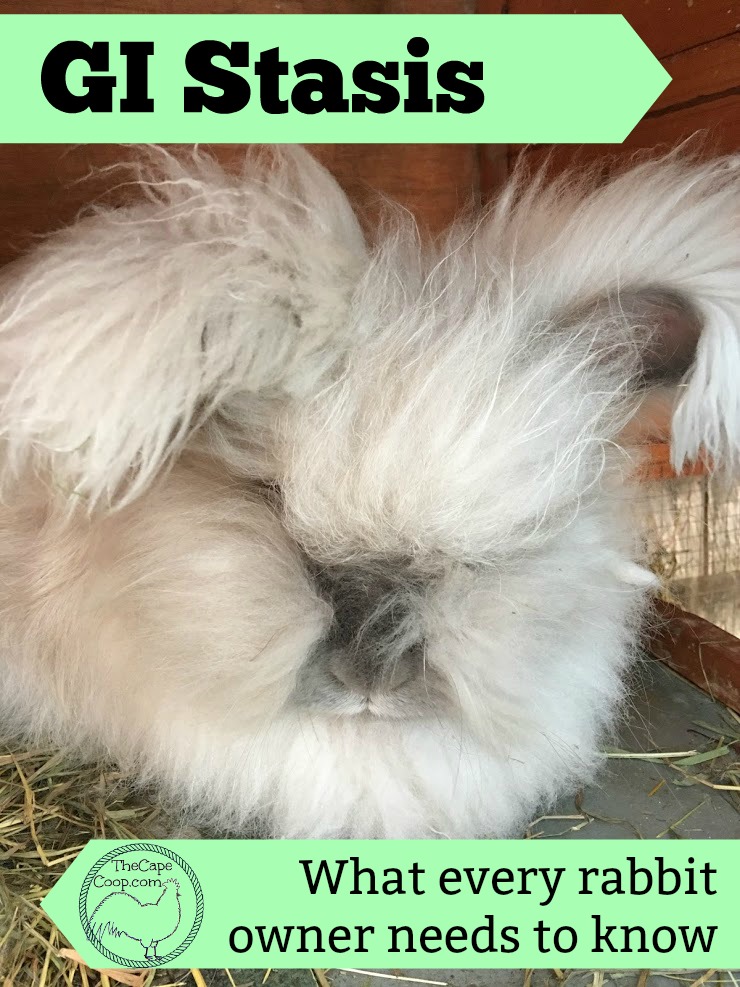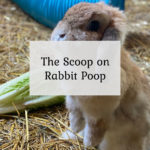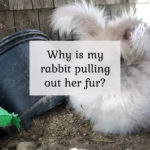---------------------------------------------------------
What is GI Stasis?
Gastro-Intestinal Stasis is inactivity (stasis) of the digestive system.
Rabbits have special digestive systems
Rabbits are herbivores, herbivores that eat a very high fiber diet which would be too hard for many animals to digest. Because of this, their bodies have a special “sac” in between their small & large intestines called a cecum. After passing through the small intestine, food that is done digesting is sent to the large intestine to be processed as waste. The food that is not done digesting is passed to the cecum where a large population of healthy bacteria, yeasts, and microorganisms work to break down the food into a digestible form. They are turned into cecotropes, nutrient powerhouse pellets the rabbit will expel as waste and then consume to reap the nutritional benefits.
So there is A LOT going on in a rabbit’s digestive system! Any slowdown (or worse, shut down) along the way can have deadly consequences and can go from bad to worse very quickly.
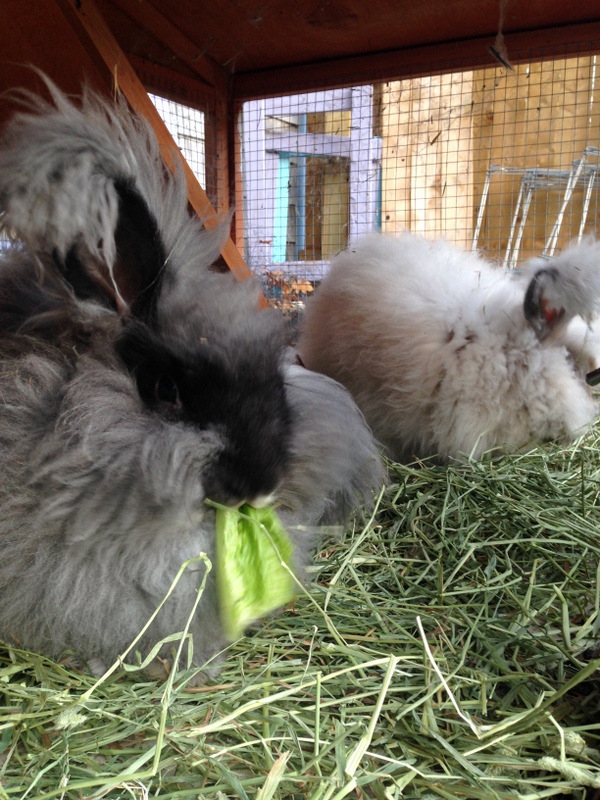
What can cause GI Stasis?
The main causes are stress, dehydration, pain (wounds, dental problems, UTI), or a diet lacking high-fiber foods. Most of these causes can be avoided by practicing good rabbit husbandry. Unlimited amounts of good quality hay will help your rabbit meet their fiber needs. Fresh, clean water will keep them hydrated. If your rabbit is sick or injured be especially vigilant, monitoring them to make sure they are eating and eliminating normally.
What happens when a rabbit has GI stasis?
A slowing intestinal system means food isn’t moving as fast as it should through the intestines and the stomach isn’t emptying as fast. This causes the rabbit to feel bloated, uncomfortable, and full. They will stop eating & drinking. This causes their liver to work overtime trying to keep the bunny alive (this alone can be a deadly side effect). The food/hair in the intestines will dry out and become impacted, causing blockages and intensifying the problem. Intestinal blockages can allow harmful bacteria to build up, releasing gas and causing extreme pain, in turn making the stasis even worse. You can see how this all can escalate very quickly, with fatal consequences.
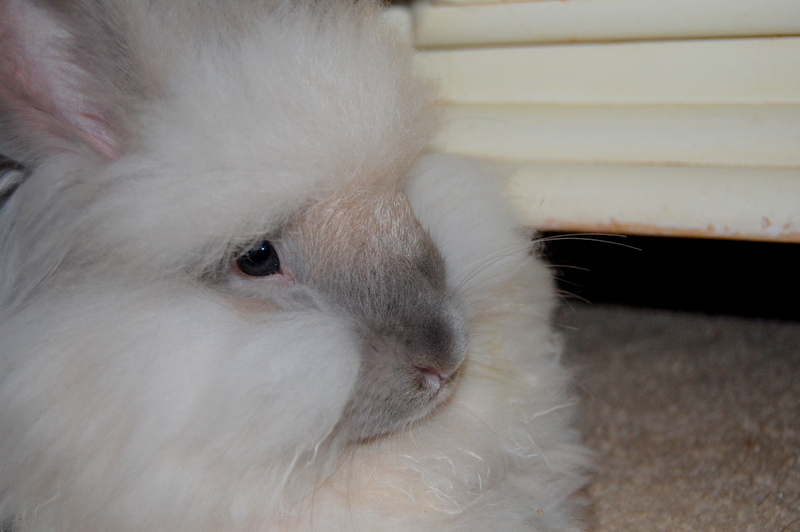
Symptoms to watch for
Loud gurgling noises coming from the stomach, hunched posture, bloating, lack of appetite, lethargy, small, misshapen, runny, or no fecal pellets. If fecal pellets are coated in mucus consider this an advanced stage and emergency medical help should be sought!!
What should you do if you suspect GI stasis?
Get your bunny to a vet that has experience treating rabbits. If your rabbit is already not eating or drinking this is not something you want to try to treat yourself as your rabbit will decline very quickly and the results can be deadly.
Your vet will palpate the rabbit’s stomach, or possibly take an x-ray to try and determine the severity and the best treatment which could include manual manipulation, drugs to induce motility, IV fluids, pain medication, or antibiotics. Unfortunately, due to extreme pain, many rabbits will “give up” and simply stop eating. You will want the vet to help you & your bunny through, providing pain relief, & getting your rabbit the proper nutrition.
Treating Early GI Stasis
If you suspect early stages of GI stasis (small poops or poops “strung” together with ingested fur) there are a couple of things you can try at home.
*I am not a veterinarian, if possible always consult a trained vet before treating your rabbit*
Remove all food pellets from the rabbit’s home and increase the amount of Timothy hay. Change the hay frequently during the day to keep it fresh and try adding some fresh herbs to encourage her to eat.
In addition to the hay, offer plenty of fresh greens. Rinse the greens and give them to the rabbit while wet. It will make them more appetizing and provide her with extra water. Change the water in her bottle or bowl a few times daily to keep it fresh. You can try adding small amounts of fruit juice to the water to entice her to drink more.
Offer a couple of papaya vitamin tablets to her to help break up any hairballs that might be forming. Increase the amount of exercise time, physical activities will help regulate the digestive process. If your rabbit is not feeling better in a day or two, or if she stops eating or eliminating bring her to a vet right away.
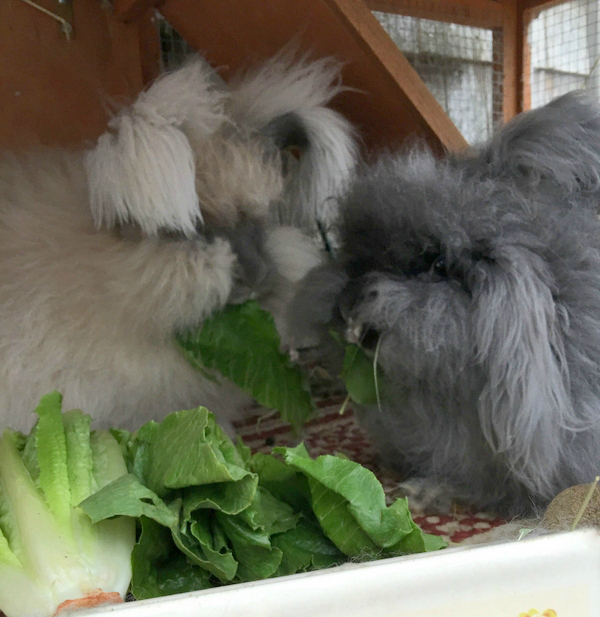
How can I prevent this from happening?
A good quality diet with lots of high-fiber hay and fresh vegetables is one of the most important steps to keeping your rabbit healthy. Long strands of hay can stimulate the intestines and keep things moving along. Give high-sugar treats (carrots, fruit, yogurt) and high carb treats (bread, crackers) sparingly.
Limiting stress can be a little harder. If a rabbit loses their bonded friend, it can become depressed and stressed. Give a newly alone rabbit plenty of love and extra attention. Rabbits are animals that crave familiarity. Keep them happy by keeping their routines, schedules & environment consistent. Give them a secure, safe place to sleep.
Make sure your rabbit gets regular exercise. Just like with humans, getting up and out and moving around helps to keep your digestive system running smoothly.
Regularly inspect your rabbit’s body for potential injuries, and check their teeth for issues (click here to learn more about caring for rabbit teeth). Keep their cage clean to limit their exposure to harmful bacteria. Spend time with your rabbits, getting to know their personalities so that when something is amiss you can catch it quickly. Remember rabbits are prey animals so evolution has taught them to be really good at hiding weakness, they will make every attempt to conceal injuries or illnesses.




